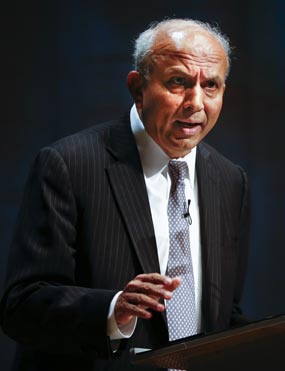As the slumbering IPO market began to stir this year, Cara Operations, Shopify and Spin Master all came to market with IPOs offering shares that had different votes and powers than the private owners and management did.
These IPOs, and a close shareholder vote at Fairfax Financial, have renewed the debate about dual class shares, so much so that one senior lawyer at a major firm declined to contribute to this piece on the basis that firm’s clients had conflicting views on the issue.
As it turns out, dual class shares have been controversial ever since they came on the scene more than 60 years ago. Still, they have historically been unusually popular in Canada: the 1980s saw some 130 such companies listed on the Toronto Stock Exchange, and as recently as 2005, they accounted for more than 20 per cent of all companies listed on the TSX compared with just 2 per cent in the United States.
The emergence of shareholder activism in Canada in the last decade, however, appears to have slowed the train, with only some 80 dual share companies currently listed on the TSX.
Indeed, it hasn’t been that long since TELUS Corporation won a year-long proxy battle to collapse its dual share structure. Pitting management against US hedge fund Mason Capital Management LLC, the dispute has earned a place among the most bitter and high-profile fights in Canadian corporate governance annals.
“People bringing companies to market have been very conscious of the rise in shareholder activism when they’re thinking about dual share structures,” says Cornell Wright of Torys LLP in Toronto. “It continues to be a complicated story.”
Since 1987 – not long after the OSC ruled that the attempted takeover of Canadian Tire by the owners of its heavily weighted class of voting shares was abusive – the TSX instituted mandatory “coattail” provisions for new dual class share listing. Coattail provisions, using a number of mechanisms, ensure that takeover bids offer the same terms to holders of subordinate shares as they do to multiple voting shareholders.
“Coattails are always relevant to ensure that any premium offered is offered to all shareholders,” says Philip Anisman, a Toronto-based securities law expert and sole practitioner. “The mechanics are less important than the principle.”
Historically, the justification for dual share structures is that they allow owner-managers to concentrate on enhancing value.
“The premise is that the controlling shareholders can concentrate on managing for everyone without distraction,” Anisman says. “The prerequisite, then, should be that the holders of the multiple voting shares hold a significant portion of the equity.”
Indeed, the controversy that ensued in 2010 when Magna paid founder Frank Stronach an 1800 per cent premium by way of collapsing the company’s dual share structure, many of the objections centred on the fact that Stronach held less than 1 per cent of the company’s equity at the time.
Compensation limits for multiple voting shareholders who are involved in management, Anisman says, should also be a key feature of dual class structures. He notes that when the shareholders of Fairfax Financial Holdings narrowly voted in late August to let co-founder and chief executive Prem Watsa fix his voting stake at 41.8 per cent for the next 10 years regardless of his actual holdings, a key part of the arrangement was Watsa’s agreement to freeze his salary at some $600,000 annually.
“That aspect was really quite remarkable, because what it implicitly conveyed was that Watsa would take his value out through the creation of value for all shareholders,” Anisman says. “And unlike Stronach’s position in Magna, Watsa has substantial equity holdings in Fairfax.”
Regardless of whether any renewed trend toward dual class structures exists, however, it seems that the markets have come a long way since the Canadian Tire debacle in realizing that the day will come when dual class share structures have outlived their usefulness in terms of their benefit to the company.
Dealing with that issue in realistic terms, then, appears to have prompted Alimentation Couche-Tard’s desire to change the terms of its multiple voting shares: later this month, shareholders will decide whether to alter the termination trigger for its dual class structure from its current termination date of 2021, when the youngest of the founder reaches age 65, to the date when there are no longer any founders on the company’s board.





